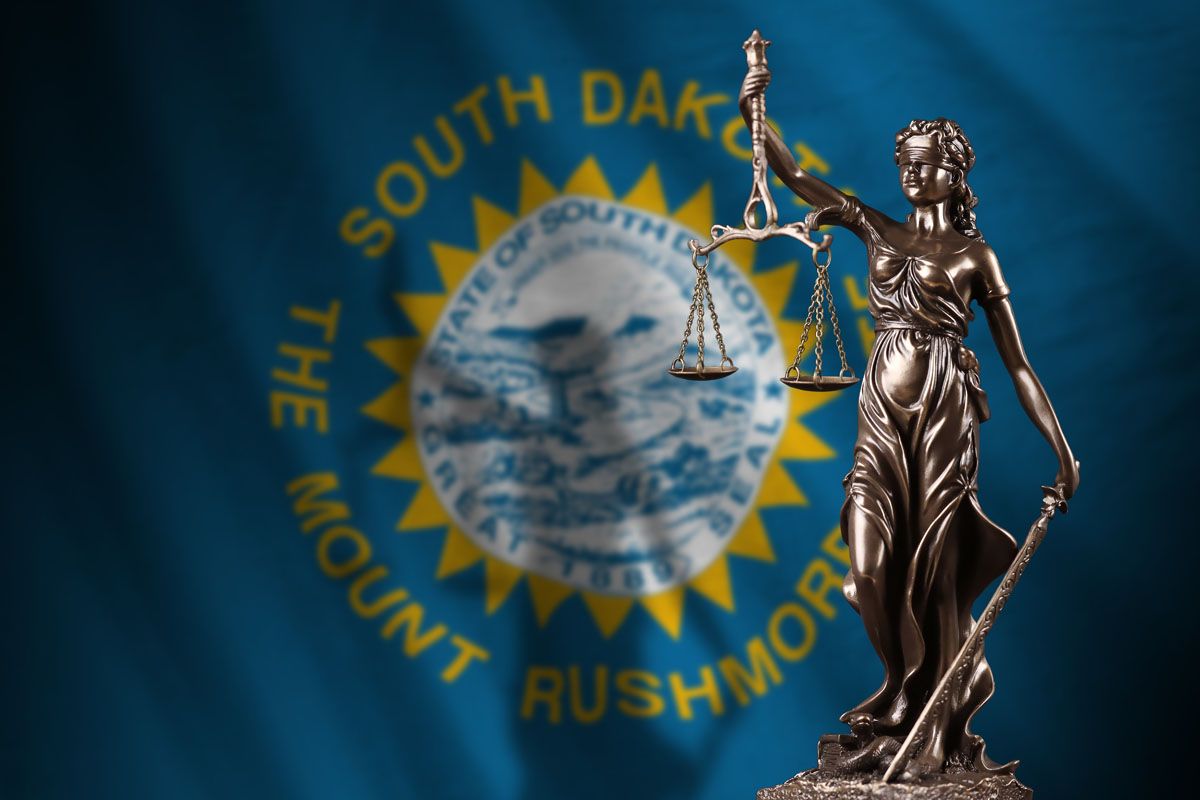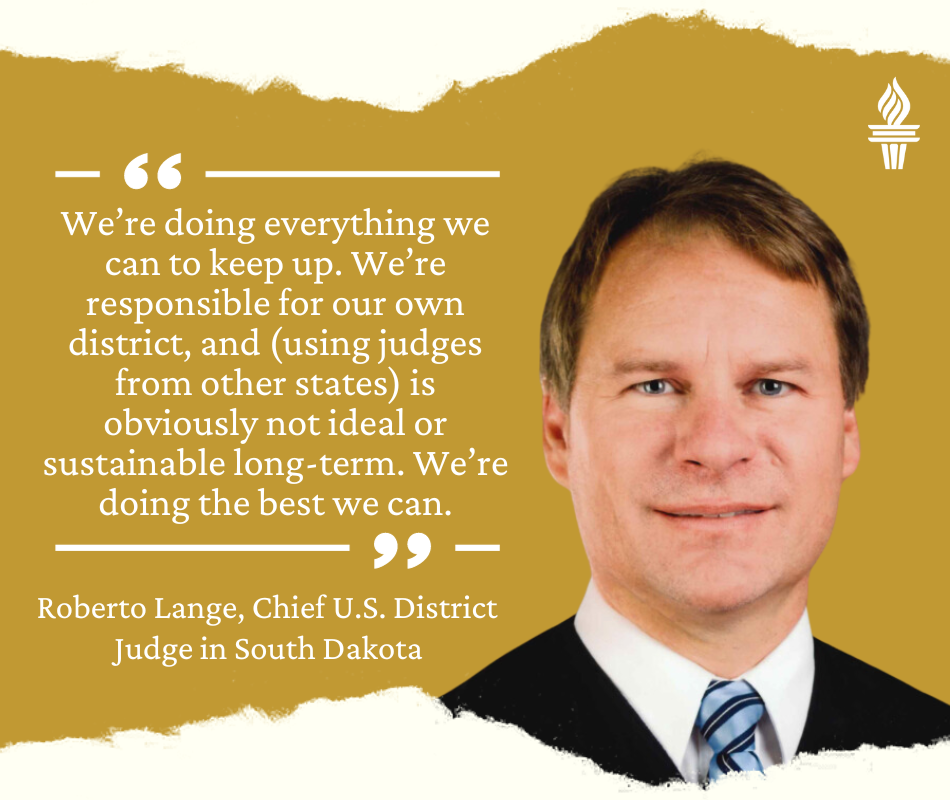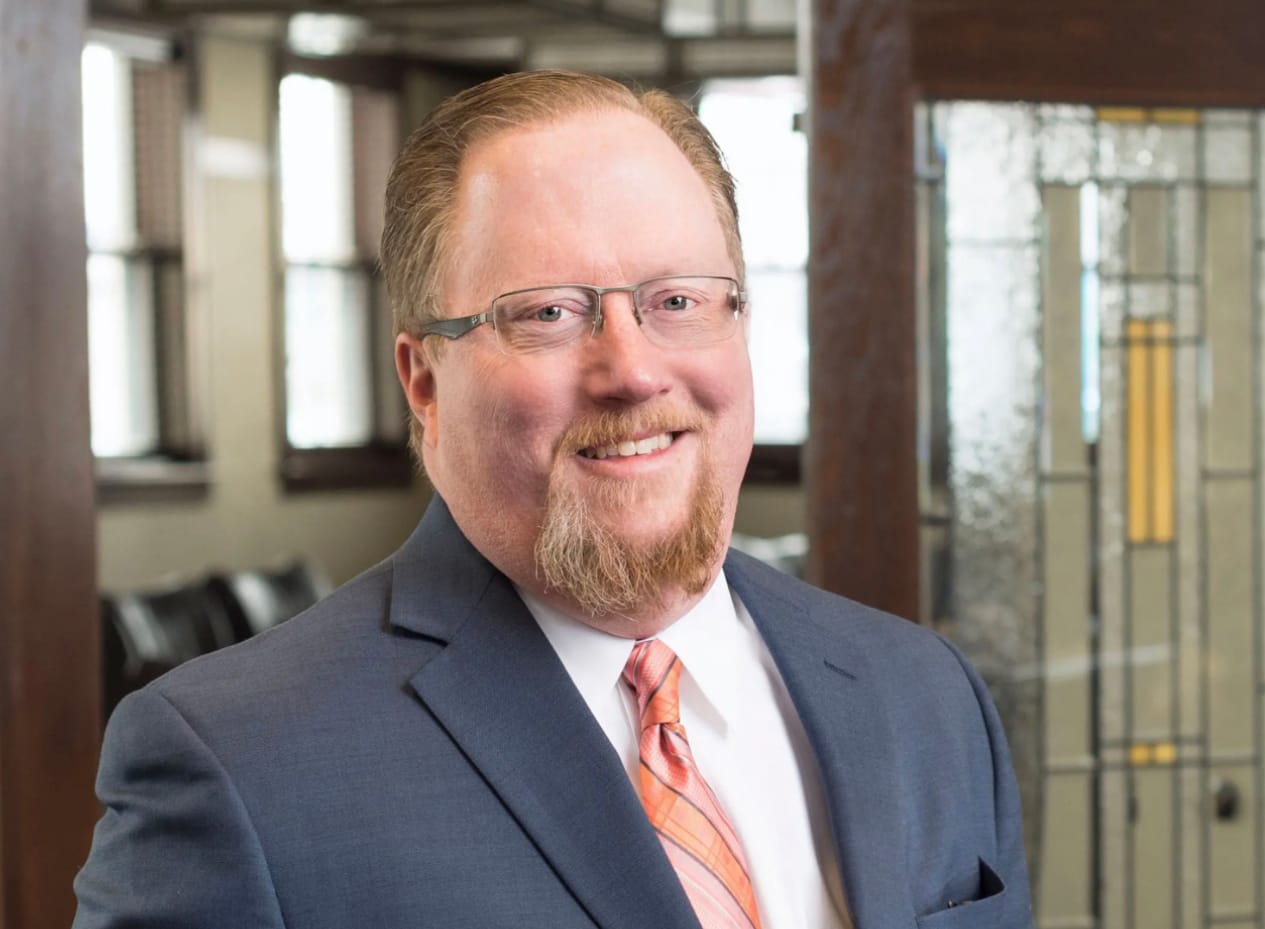SIOUX FALLS, S.D. – The long-stalled process of naming two new federal judges to South Dakota’s U.S. District Court is expected to speed up in January 2024, with Sioux Falls lawyer Eric Schulte atop the names being considered for a lifetime appointment.
South Dakota News Watch interviews with people involved in the process reveal fresh urgency to negotiations between President Joe Biden’s administration and Republican U.S. Sens. John Thune and Mike Rounds to find candidates agreeable to both sides.
Schulte, a litigation lawyer with Davenport Evans and former president of the State Bar of South Dakota, could be nominated by Biden as early as January. The nomination is sent to the U.S. Senate Judiciary Committee and then must be confirmed by majority vote on the Senate floor.

Schulte, a graduate of the University of South Dakota School of Law, has practiced at Davenport Evans since 2000, focusing on general civil litigation, insurance defense, and commercial and complex litigation. He did not respond to a request for comment from News Watch.
Chief U.S. District Judge Roberto Lange could not comment on the nomination process but told News Watch that any action on the vacancies would be welcomed because of the state’s increasingly crowded federal docket.
The district of South Dakota has started bringing in judges from other states to relieve the strain on current judges that stretches back more than two years, when Judge Jeffrey Viken of Rapid City announced his retirement timeline.

U.S. District Judge Daniel Hovland of North Dakota and U.S. District Judge James Moody of Arkansas have presided over recent criminal trials in Rapid City.
“We’re doing everything we can to keep up,” said Lange. “We’re responsible for our own district, and (using judges from other states) is obviously not ideal or sustainable long-term. We’re doing the best we can.”
South Dakota’s district has four divisions: southern in Sioux Falls, northern in Aberdeen, central in Pierre and western in Rapid City. It handled 822 criminal and civil cases combined in 2022, said Matt Thelen, clerk of courts. That number is up to 854 in 2023 through Dec. 20.

Criminal cases add up in Rapid City
Viken announced his retirement in September 2021 but took senior status, a process by which qualified judges assume a reduced workload and create a federal vacancy. He kept most of his criminal cases while his civil docket was distributed among other judges.
Viken fully retired at the end of September 2023, meaning all Rapid City criminal cases fell to the other judges, creating the need for occasional help from out of state. Indian Country jurisdiction makes it a unique and busy docket, with the division encompassing nearly 40% of South Dakota’s federal criminal cases filed in 2023.
Those criminal cases have been distributed among active judges: Lange in Pierre and Aberdeen, U.S. District Judge Karen Schreier in Sioux Falls, and two district judges on senior status, Lawrence Piersol and Charles Kornmann. Kornmann, 86, and Piersol, 83, have been on senior status for more than a decade and don’t work a full caseload, taking time off in the winter months.
Schreier announced in January 2023 that she plans to retire and take senior status upon the confirmation of her successor. That means there are two seats to be filled out of three available active judgeships in the South Dakota district.
“We have two senior judges handling a significant number of cases and the current active judges handling a crushing number of them,” said Neil Fulton, dean of the University of South Dakota School of Law, who served as chief of staff under former Gov. Mike Rounds. “I hope that everyone who has a say in this remains focused on identifying mutually acceptable candidates that can move forward.”
Lack of South Dakota Democrats hurts process
Political realities have shaped the process in South Dakota.
Biden, a Democrat up for re-election in 2024, is assessing vacancies in a heavy Republican state that already has a stable of Democratic-chosen lifetime appointees from Presidents Bill Clinton and Barack Obama.
Of the active judges, Schreier was appointed by Clinton and Lange by Obama. Kornmann and Piersol were appointed by Clinton.
Biden has a razor-thin Senate majority that makes it necessary to consult with Thune and Rounds to identify agreeable candidates. Judicial nominations typically go through a Senate tradition known as the “blue slip,” which allows home-state senators to weigh in on whether the nominee should move forward.
Thune and Rounds did not respond to requests for comment through their offices for this story.
Complicating the process is the lack of a Democratic Party standard-bearer in South Dakota to shepherd the process of identifying, recommending and championing qualified candidates.
In most states, the recommendation process would be handled through the office of a Democratic statewide officeholder, as when then-U.S. Sen. Tim Johnson shepherded the 2009 appointments of Viken and Lange under the Obama administration.
With no statewide elected Democrats in South Dakota, the task fell to Randy Seiler, a former U.S. attorney and South Dakota Democratic Party chair who died in April 2023.
His top choice fell through in April 2021 when former U.S. Rep. Stephanie Herseth Sandlin announced her intention to remain as president of Augustana University in Sioux Falls.

President Biden seeks diversity on federal bench
Dan Ahlers, executive director of the South Dakota Democratic Party, told News Watch that he has met with potential candidates for the federal bench as he tries to steer the party through recent leadership changes.
Ahlers and party chairman Shane Merrill traveled to Washington earlier this month to meet with Democratic National Committee staff. They have sought an open channel with the White House Counsel’s Office to establish timelines for judicial nominations.
“We’ve got to have a judge West River who knows the needs of the area and understands the differences in cultures,” said Ahlers, a former state legislator and U.S. Senate candidate from Dell Rapids. “When you’re shipping people in and out from other places, they don't have those connections. I think everyone that's part of this conversation understands that and wants to be able to get someone in there as soon as possible.”
When Viken announced his impending retirement in the fall of 2021, he told the Rapid City Journal that “a Native person would be an extraordinary candidate for this job.”
That fit with the Biden administration’s priority to nominate women and people of color as Article III judges (Supreme Court, Circuit Court, District Court), preferably those with experience in civil rights.

Nearly two-thirds of the federal judges Biden has appointed so far are women, and the same percentage are members of racial or ethnic minority groups, according to analysis by the Pew Research Center.
Three previous judge candidates missed mark
Finding qualified candidates in South Dakota who fit those criteria has been a priority and a challenge. Seiler formed a six-person committee in April 2021 to review applications for judicial candidates with that task in mind.
The three candidates recommended were Tracy Zephier, then-attorney general of the Cheyenne River Sioux Tribe; Sarah Collins, an assistant U.S. attorney who is a member of the Oglala Lakota Tribe; and Troy Morley, an assistant U.S. attorney and member of the Turtle Mountain Band of Chippewa who currently serves as tribal liaison for the U.S. Attorney’s Office.
One of the applicants withdrew their name from consideration, and the other two weren’t advanced by the White House as formal nominees.

Veronica Duffy, a federal magistrate judge in Sioux Falls, was later recommended by Seiler but is no longer under consideration, according to News Watch interviews with those involved.
Schulte’s candidacy is aided by the fact that he worked to boost the number of Native American lawyers as president of the bar association, promoting recruitment events along with support for Native students such as financial assistance with law school entry.
He also has been active with nonprofit and social service efforts, serving on the board of directors for East River Legal Services and The Banquet. Bolstered by his litigation experience and state bar leadership, his candidacy has garnered support from both sides of the political spectrum where others did not.
“It’s incredibly difficult to be nominated and confirmed as an Article III judge,” said Fulton, a former federal public defender in the 8th U.S. Circuit Court of Appeals. “There’s a background check process, political process, there could be other concerns from the White House or party. It’s just hard to get all the gears to align for someone to move forward.”
Oklahoma gains Native federal judge
As of Dec. 19, Biden has had 39 circuit court judges and 126 district court judges confirmed by the Senate during his presidency. If Schulte is nominated in January, it will depend on the committee calendar and finding a slot for floor consideration to get him confirmed.
There have been 10 district court confirmations in the past month, including a female Native American judge approved for a lifetime appointment in Republican-controlled Oklahoma.

Sara Hill was confirmed Dec. 19 for a district seat in the Northern District of Oklahoma, becoming the first Native American woman confirmed for a lifetime appointment in the state. Hill, a former Cherokee Nation attorney general, was opposed by Oklahoma’s Republican governor, Kevin Stitt, but supported by GOP U.S. Sens. James Lankford and Markwayne Mullin.
“This has to be an agreement between both senators in Oklahoma and the White House,” Lankford told the Oklahoman newspaper. “As I would tell you, both senators from Oklahoma and the White House don’t agree on a lot of things, but we do have to find common ground to be able to work on things together.”
Hill was confirmed by a vote of 52-14. Thune voted no, while Rounds was listed as not voting.
For South Dakota, Lange said there is a need for someone with the right federal judicial experience and temperament to make a lasting impact in a critical jurisdiction.
“It’s important to have someone with a background in federal litigation and trial work, who has exposure to criminal and civil cases, who is willing to work devotedly, and who doesn’t have a political agenda,” he told News Watch.







